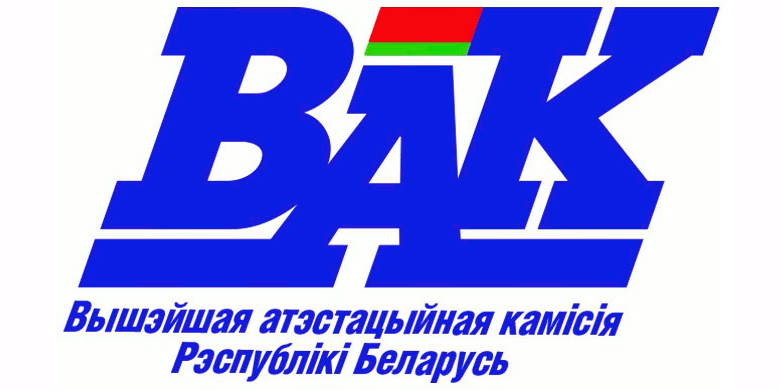Культурное разнообразие как преимущество многокультурных профессиональных команд
Keywords:
культура, общество, глобализация, социализация, межкультурный диалог, межкультурные различия, команда, личностьAbstract
В современной глобальной профессиональной среде международные команды стали неотъемлемой частью корпораций и организаций. Команда людей с разным культурным происхождением может иметь огромные преимущества, такие как знание различных рынков и взаимодействие с клиентами на основе учета культурных особенностей. К сожалению, культурные различия внутри команд могут создавать препятствия для эффективной совместной работы. Руководители должны стремиться объединить разнообразную корпоративную культуру, будь то люди разного социально-этнического происхождения или выходцы из разных стран – преимущества многочисленны. В статье объясняются некоторые основные моменты и преимущества работы в мультикультурных командах. Далее описывается, как межкультурная компетентность рассматривается в контексте мультикультурных команд, и излагается основа для исследования и практики межкультурного общения.
References
References
About EENCE Access mode: https://eence.eu/about-us/.
Carmel E. Global software teams. Upper Saddle River, NJ: Prentice Hall; 1st edition., 2011, 269 p. (In English)
Culture as the core: Perspectives on culture in second language learning. / Ed. by D. L. Lange, R. M. Paige. Information Age Publishing; Illustrated edition., 2003, 384 p. (In English)
EENCE documents Access mode: https://eence.eu/category/documents/.
Gudykunst W. B., Kim Y.Y. Communicating with strangers: An approach to intercultural communication. McGraw-Hill Humanities / Social Sciences / Languages; 4th edition., 2002. 448 p. (In English)
Hofstede G. Cultures and organizations: Software of the mind. McGraw-Hill Education; 3rd edition, 2010, 576 p.
Marquardt M. J., Horvath L. Global teams: How top multinationals span boundaries and cultures with high-speed teamwork. Nicholas Brealey; Illustrated edition, 2012, 268 p. (In English)
McCroskey J. C., Richmond V. P. Willingness to communicate: Differing cultural perspectives. The Southern Communication Journal, 56, 1990, рp. 72-77. (In English)
Maderer D., Holtbrügge D., Schuster T. Professional football squads as multicultural teams: Cultural diversity, intercultural experience, and team performance. International Journal of Cross Cultural Management –14 (2), 2014, рp. 215-238. (In English)
Ricard V. Developing Intercultural Communication Skills: Krieger Pub Co., 1993, 184 p. (In English)
Ray D., Bronstein H., Bronstein H. F. Teaming Up: Making the Transition to a Self-directed, Team-based Organization? New York; McGraw-Hill, 1995, 247 p. (In English)
Список литературы
Об EENCE [Электронный ресурс]. – Режим доступа: https://eence.eu/about-us/.
Кармель, Э. Глобальные команды разработчиков программного обеспечения. / Э. Кармель. – Upper Saddle River, NJ: Prentice Hall; 1-е изд., 2011 г. – 269 с.
Культура как ядро: взгляды на культуру при изучении второго языка. / Под ред. Д. Л. Ланге, Р. М. Пейдж. – Издательство «Информационная эпоха»; Иллюстрированное издание, 2003. – 384 с.
Документы EENCE [Электронный ресурс] – Режим доступа: https://eence.eu/category/documents/.
Гудикунст, В. Б. Общение с незнакомыми людьми: подход к межкультурному общению. / В. Гудыкунст, Ю.Я. Ким. – Макгроу-Хилл гуманитарные / социальные науки / языки; 4-е изд., 2002. – 448 с.
Хофстеде, Г. Культуры и организации: Программное обеспечение разума. / Г. Хофстеде. – McGraw-Hill Education; Издание 3-е, 2010. – 576 с.
Марквардт, М. Дж. Глобальные команды: как ведущие транснациональные корпорации преодолевают границы и культуры с помощью высокоскоростной командной работы. / М. Дж. Марквардт, Л. Хорват. – Николас Брили; Иллюстрированное издание, 2012. – 268 с.
Маккроски, Дж. С. Готовность общаться: разные культурные точки зрения. / Дж. К. Маккроски, В. П. Ричмонд // Южный журнал коммуникаций, 56, 1990. – С. 72-77.
Профессиональные футбольные команды как мультикультурные команды: культурное разнообразие, межкультурный опыт и командная эффективность / Д. Мадерер, Д. Хольтбрюгге, Т. Шустер // Международный журнал межкультурного менеджмента – 14 (2), 2014 – С. 215-238.
Рикар, В. Развитие навыков межкультурной коммуникации / В. Рикар. – Krieger Pub Co., 1993 – 184 с.
Объединение: переход к самостоятельной командной организации? / Д. Рей, Х. Бронштейн, Х. Ф. Бронштейн. – Нью-Йорк; McGraw-Hill, 1995. – 247 с.













